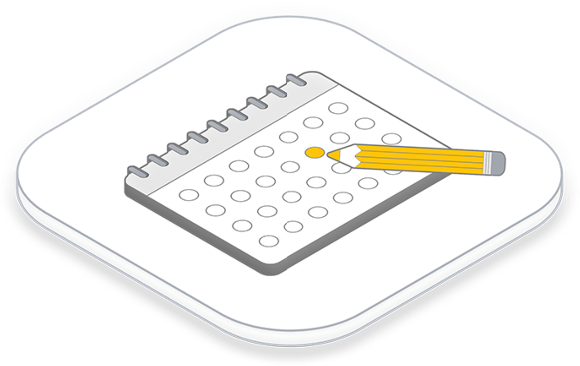24
July 2024
Innovation is the key to the long-term success of companies. However, before organisations invest in breakthrough innovations, they must first do their homework, particularly in the area of digitalisation. This article therefore sheds light on the importance of housekeeping in the digital sphere and how companies can strengthen their ability to innovate by optimising their processes and integrating data.
A breath of fresh air against the doldrums
Germany needs to reinvent itself as a business location. The German government has lowered its growth forecast for 2024 and expects a decline of 0.2 percent for the current year. What should decision-makers in the economy do now? Many are prescribing a medicine that was already considered a panacea in difficult times in past decades: save money and tighten your belt until external stimuli come to the rescue. Unfortunately, this approach often comes at the expense of innovations that could actually rescue the company from within. In this sense, investing in development teams and an efficient digital environment is not a cost problem, but the solution to challenges both now and in the future. However, companies must create the necessary conditions to be able to help themselves.
Laying the foundations for innovative capacity
Organizations often lack the necessary foundations to be able to develop genuine innovations at all. These basics include efficient processes and seamless data integration. The focus should therefore be on ‘smart innovation’ rather than ‘radical transformation’. In concrete terms, this form of housekeeping means creating tangible process and efficiency benefits with smart, strategic and manageable investments in smart innovations. At the same time, this allows companies to catch up in terms of digitalisation without having to make a complete tabula rasa from a technological perspective. Although this approach is not necessarily glamorous, it is crucial for paving the way for future innovations and saving money and time at the same time. This trend will define the year 2024 and will probably continue in 2025.
Housekeeping focuses in particular on the availability and processing of company data. This is the fuel of the modern economy and plays a central role in informed decision-making processes and innovation. However, the required data is often trapped in silos or difficult to access. To change this, organisations need to identify the key data sources and metrics that drive their business decisions. But the atomisation of process capabilities, i.e. flexibilities via infrastructure as code that were previously encapsulated in static digital process flows and thus not available to mix and match for new process derivatives, is also relevant. Both aspects can even be regarded as roughly equivalent.
Innovation requires optimised processes and integrated data
Having a dashboard with all key performance indicators available in real time is one of the oldest dreams of company management. This is where all relevant information from all available channels is aggregated in order to make optimal decisions at the right time. However, this requires these key figures to be defined and properly collated. With optimised processes and integrated data, companies can realise several benefits that directly support their ability to innovate and help them to better identify and exploit opportunities:
- Faster and more informed decisions: Real-time data makes it possible to react more quickly to market changes and make more informed decisions.
- New data-driven business models: By analysing and using data, companies can develop innovative business models.
- Freeing up time and resources: More efficient processes and better data integration free up valuable time and resources that can be invested in innovative projects.
- Improved operational efficiency and customer experience: Optimised processes lead to greater efficiency and a better customer experience.
So before companies try to build the ‘next big thing’, they have to do their homework. These impact innovations do not necessarily have to be expensive and complex, but in most cases they pave the way for the big breakthrough innovations. Essentially, the aim is to provide all relevant business processes with digital endpoints and to aggregate the data cleanly. This also requires defining which insights the company needs to generate along the customer journey. Companies can then get a grip on their processes again and no longer allow themselves to be controlled by them. However, the reality in companies still looks different at the moment. Poor processes are forcing organisations to invest a lot of time in overheads. They then lack this time to reflect and make optimal decisions based on clean data.
Practical steps for data integration
To improve data integration and increase innovation, organisations should take the following steps:
-
Process analysis and redesign
A thorough analysis of existing processes helps to identify and eliminate bottlenecks. -
Assess technical capabilities
It is important to assess the technical capabilities of the organisation to close existing data gaps. -
Build a meta-layer
A meta layer to aggregate data from different sources creates a standardised database. -
Data visualisation and dashboarding
Visualising data in the form of dashboards gives decision-makers a clear and comprehensible overview.
Reducing digital debt
Data integration is an important building block of housekeeping. This is now the time to reduce the technical and procedural debts of the last ten, 20 or even 30 years. Only when this weight has been lifted from the shoulders of those responsible will their heads be free again to do their work really well and be creative. Big things need big ideas and creativity is not something that is released in a scheduled meeting on a Friday afternoon. It arises when there is the capacity and freedom to generate new ideas.
In our new series on the topic of innovation, we will present which elements are part of our housekeeping and how best to implement them.
About the author



Comments